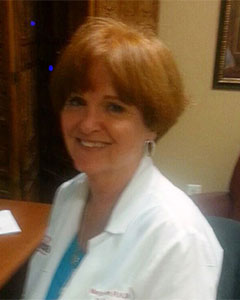Measles Outbreak in California – Could it Happen in Florida?
For the past several decades, most people living in the United States have not had to worry about contracting childhood communicable diseases. Prevalence of childhood vaccinations has served to create herd immunity, protecting the more vulnerable of our society from these diseases. Yet in December 2014, an outbreak of measles started in California. As of January 30, 2015, the Centers for Disease Control (CDC) reports a total of 102 cases, with one outbreak representing 92% of those cases.
How could a measles outbreak happen?
California, like Orlando, is a popular tourist destination for many international travelers. Many travelers come from locations where vaccinations are not required. One person, who possibly had just returned from overseas travel to a developing country where the risk for measles is high, contracts the disease and infiltrates the crowds, spreading germs around. Measles is highly contagious, so even if 90% of the people are vaccinated, the remaining 10% who are not vaccinated will become infected.The illness is transmitted and primarily spread by sneezing, coughing or by direct contact with nasal secretions from an infected person. Simply coming in contact with a compromised area when it has been recently contaminated by an infected person such as the bar of a roller coaster, or the lock dial of a belongings cubby, could mean instant exposure. In the case of the recent California measles outbreak, the vast majority of people who were infected were unvaccinated against the disease, including children who are too young for the vaccines and those who choose to remain unvaccinated.
The measles vaccine is your best protection
Measles vaccine is one of the most effective vaccines around — after 2 doses it provides 99% protection. The CDC recommends that all children get two doses of measles (MMR vaccine) starting the first dose at 12-15 months of age and the second dose at 4-6 years of age. For adults, if you were born on or before 1957 the CDC assumes that you have immunity against this disease as it was so very prevalent in the United States during and before that period. In the United States the 2nd dose of measles was not added to the recommended schedule until 1989, which means that people born before then may be completely unaware of the benefit of a second dose (which provides the 99% protective value) and therefore may be under-immunized.If you have never been vaccinated, have no record of your vaccines, or are unsure if you have had the recommended 2 doses, you have the option of getting a blood test for measles immunity. Your physician will use this to determine if you have developed immunity in the past, either from vaccination or the disease itself. If the test is positive for immunity, no vaccines would be necessary. If vaccination is needed, the recommended schedule is 2 doses of the MMR vaccine one month apart. It is important to check with your primary care physician to assure that you have no health condition that would prevent you from getting a live virus vaccine.
Living in Orlando, Florida is not so different from California. We have many of the same attractions, the same beautiful weather and welcome visitors from all across the globe. We are now, more than ever, becoming a more global community. With that comes the responsibility to protect our children and citizens from communicable diseases. With the resources and outstanding medical care readily available, we are able to choose the right course of action to prevent further spread of this disease. The solution to the measles outbreak is vaccination for those who are able, and the responsibility belongs to each of us.







